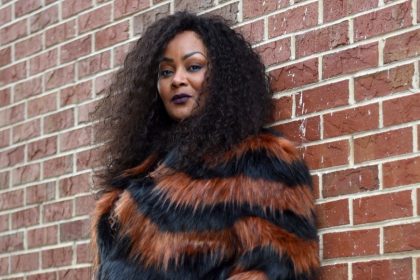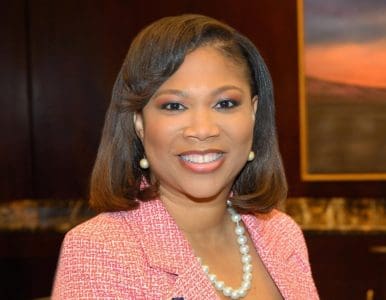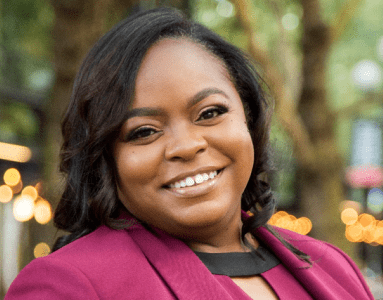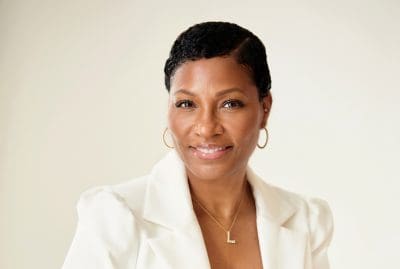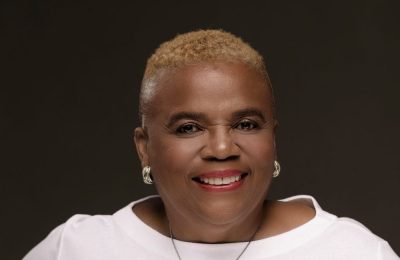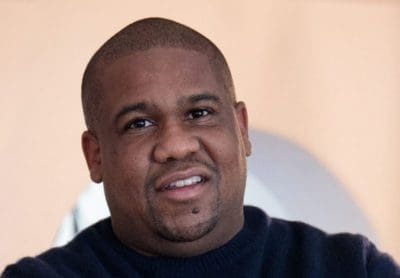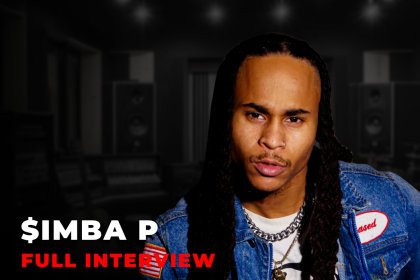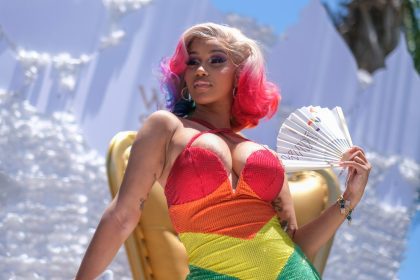Recognized as a trailblazer and thought leader, Aaron Walton’s focus on innovation and cultural engagement has transformed traditional marketing and advertising strategies. As the CEO and co-founder of Walton Isaacson, a full-service advertising agency, with offices in Los Angeles, Chicago, Dallas, and New York, Walton’s focus is squarely on identifying unseen opportunities rooted in cultural insights and connections, transforming the definition of the agency model by prioritizing diversity of thinking, and encouraging strategic solutions that defy tradition.
Founded in partnership with famed NBA superstar and entrepreneurial legend Earvin “Magic” Johnson, WI has built inventive and dynamic business relationships with brands and organizations such as Lexus, McDonald’s, American Airlines, Bristol Myers Squibb, PNC Bank and Amazon.
How have you managed to survive in an industry that doesn’t have a welcome mat out?
I’ll tell you, I think the way we have survived, has always been by focusing on culture and innovation. You don’t get innovation without having a diverse group of people working for you. If your North Star is about how do we become more innovative? How do we provide more value for our clients? Then it has to start with making sure that you have a diverse group of people working for you, who have different points of view, and look at the world differently. We encourage people to bring their authentic selves to the office every day. It’s not just because we want people to feel great about themselves, and we do, but it’s also because there are some business applications to that. People who are more apt to feel comfortable being themselves in the office, tend to speak up more and tend to provide a point of view that is often not considered when you have people kind of homogenized and doing the same thing and thinking the same way. Great innovation comes from those collisions. Great innovation comes when you have multiple ideas coming together to create something new. There was a German philosopher named Max Hegel, who came up with something called the dialectic method, and the dialectic method is that every idea has an equal and opposite idea. When the two ideas collide, they create a new one that consists of the best of the two. For me, having different cultures coming together and colliding, we get the best of each of them, and something bigger and more exciting kind of evolves. That excitement gets translated to the client. I think that’s been part of the secret sauce, in terms of how we have been able to continue to stay ahead of the game and provide insights that you don’t get if everyone’s kind of locked in the same way of thinking.
As a CEO, what made you choose the city of Los Angeles to lead an organization?
I’m originally from Boston. I grew up in Roxbury, moved to a small town called Bellingham, Massachusetts, went to private school in Rhode Island, and then ultimately went to Babson College, in Wellesley, Massachusetts. My first job was working at Pepsi. It was an amazing experience. I worked on the Mountain Dew business, I worked on the Pepsi business, and had a field assignment for a short period. I was being considered for a creative advertising position when a new assignment came my way. Pepsi decided to put me on tour with Michael Jackson, and their sponsorship of Michael Jackson. That’s how I ended up moving to Los Angeles, they moved me out to be closer to Michael’s camp, the production team, and his manager. For 18 months, I had a front-row seat to a cultural phenomenon and my new job put me smack dab in the middle of the intersection between brand, marketing, and celebrities. That’s how I started to understand the journey that I wanted to be on after working with Michael and several other brands and celebrities. I decided that’s where I wanted to be. I moved out to Los Angeles, loved it, and had a great experience. When I was here, a lot of my contacts were out here, but my roots were still back East. I still had a lot of clients on the East Coast and so I opened an office there. We started to get a lot of clients in Chicago, so we opened a footprint there. Now we have a good footprint in Dallas as well because a lot of our clients are there. Lexus is based in Dallas, and American Airlines is based in Dallas, so we’re doing a lot of work with Frito-Lay and Doritos, so it made sense to have a group of people that could service those businesses in those areas. And then of course COVID happened, and everyone started working remotely, so we’re in a hybrid kind of environment. We’ve got people in different parts of the country working on clients that are in that same city, but we’ve managed to make it work. It’s so important for mentorship, and for younger people who are just getting into the business to have that time with senior leadership, and it’s a little bit harder to do it in a remote environment. We figure it out, but half the things that I learned when I was at Pepsi were just walking by someone’s office and popping into the office and talking to them and getting insights or reading the room. It’s a little bit harder to do in this kind of remote environment, but we’re trying to figure out ways to make sure that we are purposeful in those moments.
What would you do with Michael Jackson if you could resurrect him in some form of AI for one of your clients?
I can’t imagine a world without art. It is the thing that touches our lives and keeps us alive. It’s about storytelling. It’s about talking about our history, and it’s about how we communicate with other people in ways that are subtle and sometimes not so subtle. One of the things that I remember about Michael was seeing how many people were connected to his performance and spoke to them in ways that sometimes felt over the top and felt big, but you could see how emotional people were at connecting to his story and connecting to his performances, and they left feeling better than when they came in. That’s always what you want great art to do, to evoke something unique that makes you look at the world differently. That’s one of the things that I’ve learned from Michael. It was great being on the road with him for 18 months. I did two tours with him. I did his “Bad” tour, which is his first solo tour, and then I did the “Dangerous “tour, which Pepsi also sponsored. My passion for celebrity and the connection between celebrities and brands was real, and I saw this opening in the marketplace where people weren’t marrying the two in a way that was supporting both the celebrity and the brand. I saw that and I thought to myself, “That’s what I want to do.”
What should a young executive know about how to present themselves?
We all have our different personal styles. We all have different ways that we want to present ourselves. For me, it’s not just about physically how I show up in a room, although that’s part of it. I’m not ashamed to say that I love fashion, and it’s something that has always been something I’m really curious about. I love the storytelling that comes with how you present yourself, but it’s also about being prepared. It’s also about doing your homework. So when you’re in that room, you are the expert, you do have a voice, and you have to be able to make sure that your voice is heard, but also heard in a way that is supported with facts and supported with data. Before I work with a client, I do the requisite homework to make sure that I understand what the challenge is. I understand what my point of view is, and how I want to communicate that to people. The other part is about listening. It’s about making sure that when you’re in that room when you’re taking those moments to be with other people, while you may have a very specific point of view, you have to be open to being prepared to have someone else have a point of view that may change how you think, and may change how you experience or what you expected, and be able to understand that. Being able to listen doesn’t mean you’re lessening, it just means you’re giving a moment to be open to a new point of view, just like you want someone else to be open to your point of view.
Why is it important as a CEO to have passion when you walk the runway?
The first runway I walked in, I was 50, and I had to get new head shots. Our PR team was bugging me to get new head shots. I just thought to myself, I can’t do another one of those corporate yearbook photos, where you’re just kind of looking like your high school yearbook or your college yearbook. If I was going to do this, I’m going to do it my way. I’m going to do it in a way that reflects who I am. I called my friend [Kal Yee], who was a fashion photographer. He shot for Vogue, and all these major publications, and I asked him if he could take my head shot, and he said sure. He asked me what I was thinking, and I told him I saw this photo of Will.i.am, and I saw this amazing suit that he had, and I couldn’t find it anywhere. He asked who made the suit, and I said this Japanese designer named Rynshu. He told me shoots for him, and I asked if he could reach out to see if you can get the suit. He got the suit for me, and we took the photo and sent the pictures to Rynshu. He told him that he liked my look and if I would be interested in walking in his show in Paris during Men’s Fashion Week, and I said yes. It was never on my bucket list. It was never anything that I had dreamed of. It was something where I was like “OK, I’m going to try something new.” And I loved it because I wasn’t in charge. I went there to help tell someone else’s story. It was all about listening and understanding what it was that they wanted to communicate. Normally when I’m doing an event, or our team is doing an event, I’m responsible for all of it. We have amazing people that are doing the work, but ultimately it falls on my shoulders. So this was a great time and a great opportunity for me to sit back, learn, watch, and listen to be open to new ways of telling stories.
What three attributes would you want a future hire to have?
The three skills that I think are critical for the future executive that I would hire would be curiosity. Including cultural curiosity, and making sure that as a leader, you continue to ask those questions and to continue to want to learn and to be open to new, exciting things that are going on in the world. Stability I think is critical for the team members, for yourself, and for the culture, and there’s a healing power that comes along with stability as well. Authenticity is another thing that I think is critical, a desire to bring your whole self to work and to let others do the same. If my mentor was giving me some advice, that’s what I would love to have learned early on because those things I think are universal, and how leaders can help an organization move forward. Those are things that I would want to whisper in someone’s ear and say, “Hey, you’re going to have to figure out how to do this on your own, but here are the three areas that I think would help you move your organization forward and make your career what you want it to be.” There are going to be things that happen in your career that are just difficult. You’ll have to lay off someone, either because business is down or because their performance isn’t right. Those are always difficult things to address, but I’ve found that the quicker you address them, and not put them off, the better it is not just for the organization, but also the person. You don’t want to string things out, you want to address things as they happen.

